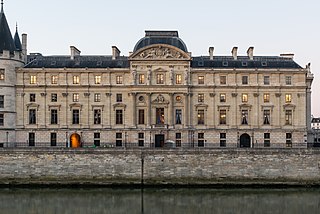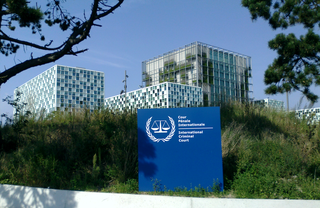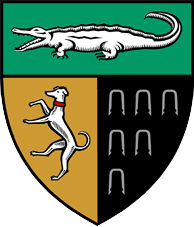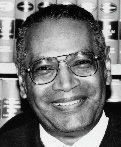Dispute resolution or dispute settlement is the process of resolving disputes between parties. The term dispute resolution is conflict resolution through legal means.

The Court of Cassation is the supreme court for civil and criminal cases in France. It is one of the country's four apex courts, along with the Council of State, the Constitutional Council and the Jurisdictional Disputes Tribunal.

A tribunal, generally, is any person or institution with authority to judge, adjudicate on, or determine claims or disputes—whether or not it is called a tribunal in its title. For example, an advocate who appears before a court with a single judge could describe that judge as "their tribunal". Many governmental bodies are titled "tribunals" to emphasize that they are not courts of normal jurisdiction. For instance, the International Criminal Tribunal for Rwanda was a body specially constituted under international law; in Great Britain, employment tribunals are bodies set up to hear specific employment disputes.

International courts are formed by treaties between nations, or by an international organization such as the United Nations – and include ad hoc tribunals and permanent institutions but exclude any courts arising purely under national authority.

Yale Law School (YLS) is the law school of Yale University, a private research university in New Haven, Connecticut. It was established in 1824. The 2020–21 acceptance rate was 4%, the lowest of any law school in the United States. Its yield rate is often the highest of any law school in the United States.

Loyola Law School is the law school of Loyola Marymount University, a private Catholic university in Los Angeles, California. Loyola was established in 1920.
The court system of Canada is made up of many courts differing in levels of legal superiority and separated by jurisdiction. In the courts, the judiciary interpret and apply the law of Canada. Some of the courts are federal in nature, while others are provincial or territorial.
An administrative law judge (ALJ) in the United States is a judge and trier of fact who both presides over trials and adjudicates claims or disputes involving administrative law. ALJs can administer oaths, take testimony, rule on questions of evidence, and make factual and legal determinations.
A quasi-judicial body is a non-judicial body which can interpret law. It is an entity such as an arbitration panel or tribunal board, which can be a public administrative agency but also a contract- or private law entity, which has been given powers and procedures resembling those of a court of law or judge and which is obliged to objectively determine facts and draw conclusions from them so as to provide the basis of an official action. Such actions are able to remedy a situation or impose legal penalties, and they may affect the legal rights, duties or privileges of specific parties.

Philippe Joseph Sands, KC Hon FBA is a British and French writer and lawyer at 11 King's Bench Walk and Professor of Laws and Director of the Centre on International Courts and Tribunals at University College London. A specialist in international law, he appears as counsel and advocate before many international courts and tribunals, including the International Court of Justice, the International Tribunal for the Law of the Sea, the European Court of Justice, the European Court of Human Rights and the International Criminal Court.
Northern Pipeline Construction Company v. Marathon Pipe Line Company, 458 U.S. 50 (1982), is a United States Supreme Court case in which the Court held that Article III jurisdiction could not be conferred on non-Article III courts.

The judiciary of Colombia is a branch of the State of Colombia that interprets and applies the laws of Colombia, to ensure equal justice under law, and to provide a mechanism for dispute resolution. The judiciary comprises a hierarchical system of courts presided over by judges, magistrates and other adjudicators.

The judiciary of Malta interprets and applies the laws of Malta, to ensure equal justice under law, and to provide a mechanism for dispute resolution. The legal system of Malta is based partially on English law and partly on Continental law, whilst also being subject to European Union law.
Johann Vincent van der Westhuizen is a South African who served on the Constitutional Court of South Africa from February 2004 to January 2016. He was a professor of law at the University of Pretoria from 1980 to 1999, when he joined the bench as a judge of the High Court of South Africa.

The judicial system of Sweden consists of the law of Sweden and a number of government agencies tasked with upholding security and rule of law within the country. The activities of these agencies include police and law enforcement, prosecution, courts, and prisons and other correctional services.

Terry J. Hatter Jr. is a senior United States district judge of the United States District Court for the Central District of California.
The judiciary of Luxembourg comprises a number of courts.
Karen J. Alter is an American academic, well known for her interdisciplinary work on international law's influence in international and domestic politics. Alter is a figure in comparative international courts and the politics of international regime complexity. Her early work focused on the European Court of Justice, a topic on which she published two books and many articles. Karen Alter is a Guggenheim Fellow, and the winner of a Berlin Prize from the American Academy in Berlin. Alter has a courtesy appointment at Northwestern Law School. Fluent in French, Italian and German, Alter has conducted research throughout Europe, Africa and Latin America.
The Court of Justice of the Andean Community was founded in 1979 by the Cartagena Agreement and began operating in January 1984 in Quito, Ecuador; it was originally known as the Andean Pact.

Solomon Areda Waktolla is an Ethiopian lawyer who had served as the Deputy Chief Justice/Vice President of the Federal Supreme Court of Ethiopia from 2018 to 2023. Solomon is a prominent lawyer with 26 years of experience in the practice of law, public administration and policy research who is committed for seeing a free and independent judiciary in Ethiopia. Justice Waktolla served in the Ethiopian Judiciary mainly as a judge for 20 years on different levels of the court in both regional and federal positions. In addition, he has been appointed to the membership of the Permanent Court of Arbitration (PCA) at The Hague, Netherlands for a six-year term to serve as an Arbitrator. Justice Solomon Waktolla was appointed on 15 November 2022 by the UN General Assembly as a Half-time Judge of the United Nations Dispute Tribunal for a mandate starting on 1 July 2023 and ending on 30 June 2030.Furthermore,he has been appointed by the Board of Directors of the African Development Bank as a Judge of the Administrative Tribunal of the African Development Bank, effective from November 2023. Justice Waktolla is an accomplished judge and jurist with many years of legal and judicial work experience at both national and international levels.










